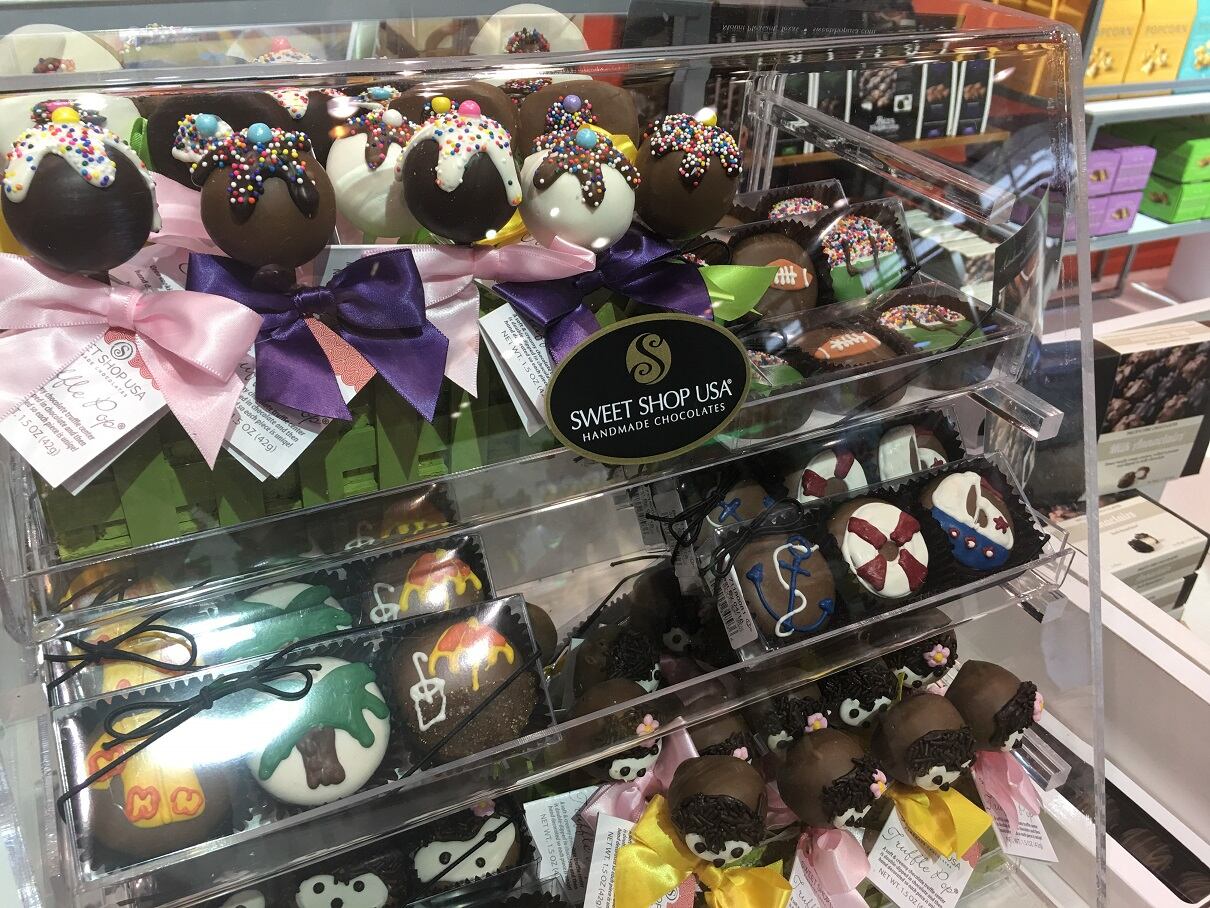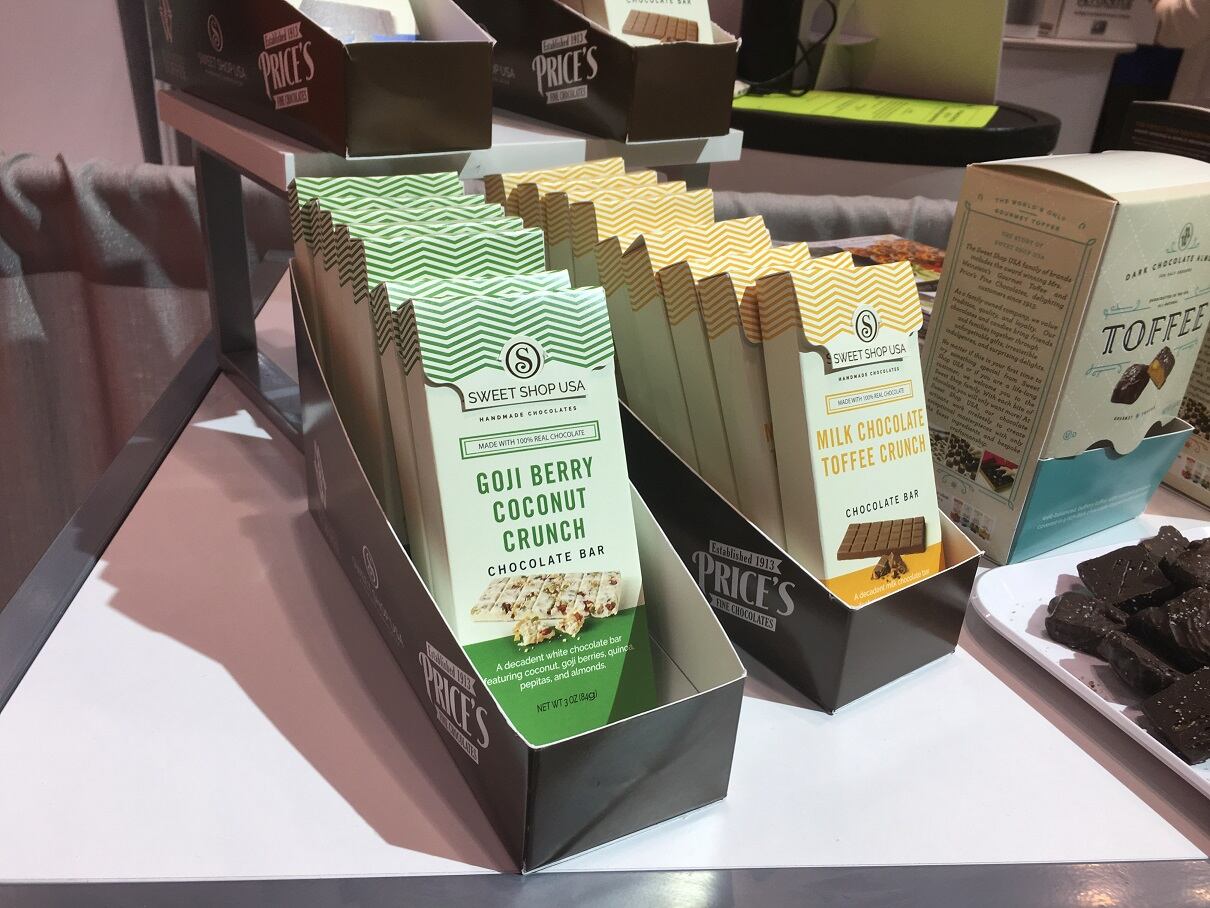The artisan chocolate producer, based in Mount Pleasant, Texas, specializes in handmade chocolates and operates mainly in gourmet and gift retailers and department store channels.
Around 75% of its sales come from branded products under the Sweet Shop USA, Price’s and Mrs Weinstein’s Toffee brands, while 25% of sales come from private label products.
Candy gifting ‘An entrée into the food business’
"I expect that we'll continue to do more private label only because we specialize in handmade chocolate so it gives us the capability to customize,” Michael L. Moss, president of Sweet Shop USA, told ConfectioneryNews.

Moss said high-end retail and gifting has experienced growth following a recovery in the US economy.
Store brands are also growing. Private label dollar volumes in the mass merchandisers/club/dollar store segment – which includes Walmart – grew +4.4% to $49.6bn, for the 52 weeks ending December 24, 2016, according to Nielsen.
This resulted in a +0.5 market share gain for the overall private label segment to 16.6%.
"I continue to see more and more national retailers expanding into the candy business - and I believe the gift market has also been very receptive to trying candy as an entrée into the food business,” said Moss.
"Our chocolate artisans can design just about any sort of design or character, so that opens us up to a lot of private label opportunities,” he continued.
Sweet Shop USA employees around 150 people to produce its handmade chocolates.
It invested $1m last year in a 8,000 sq ft caramel production room at its factory to produce caramels and pralines, adding 15 additional staff.
E-commerce: Growth via mail order
The company sees growth prospects in the direct to consumer market and in mail order delivery from its private label customers.
Sweet Shop USA sells its own brands online via its website, but sells greater volumes in e-commerce from the web stores of its private label customers.
"Many of our key accounts have talked about what their online strategy growth is,” said Moss. “Most of them have targeted 2020 as a key year for them to really change their business models.
“As a handmade chocolatier, we typically deal with smaller orders anyway, so we're strategically positioned to take advantage of that direct to consumer drop ship market,” he continued.
Moss added some of the company’s department store retailers have expressed interest in shipping the Sweet Shop USA brand directly to customers.
Sweet Shop USA's e-commerce channel grew 28% last year.
"That's still less than 25% of our overall business. But I think e-commerce will continue to grow for us anywhere between 25% to 50% annually,” said Moss.
Sweet Shop USA launches first organic line

Sweet Shop USA introduced its first organic line at the Sweets & Snacks Expo in Chicago in May this year. The products will retail for less than $5. Moss said: "We've seen opportunity with serving chocolate that has a health benefit and so these particular bars were designed with a focus on increasing protein content, decreasing sugar content, increasing fiber content and using premium organic ingredients.”
Amazon: ‘You have to look at them’
Sweet Shop USA also sees opportunities on Amazon, where it already sells some products .
"You have to look at them - they are the largest retailer in the US,” said Moss, adding it would not betray Sweet Shop USA’s principle of selling in speciality markets.
"It's just the same as selling on our website. We do not discount on Amazon and we offer the same level of service. It is just another website for us really.
"We don't sell the product on Amazon and allow them to ship our product. We retain ownership of that process," he said.
Staying special
But offline, Sweet Shop USA’s has no plans for its branded products to move into mass market retailers.
"I think the mistake a lot of businesses make when they have success in the specialty market is they begin to lose focus of what brought them there and what they are good at.
"If we were to begin selling to discount retailers or mass market retail, we no longer are specialty,” said Moss.
"Our strategy will continue to stay focused on the higher-end, gifting, gourmet and department store retailers. There's plenty of room for growth there,” he said.
Own retail stores
Sweet Shop USA has a single 3,000 sq ft own-brand store at its Mount Pleasant facility and permanent show rooms in Dallas, Atlanta and Las Vegas, but does not plan to expand its retail network.
"Right now that's not part of our strategic plan. We would rather partner with some key customers that are growing brick and mortar in the right way,” said Moss.
"We'd prefer to stick to what we do best: Making chocolate, and let others run the stores."
This approach differs to Lindt, which has been expanding its own store network globally.
Asia export opportunities
International markets account for less than 10% of Sweet Shop USA’s sales. The company exports primarily to Canada and Mexico, and does some business in the Middle East and the Caribbean.
"There’s a lot of opportunities for us in the Asian markets - we've not done anything there yet,” said Moss, adding there was room for growth in the Middle East.
